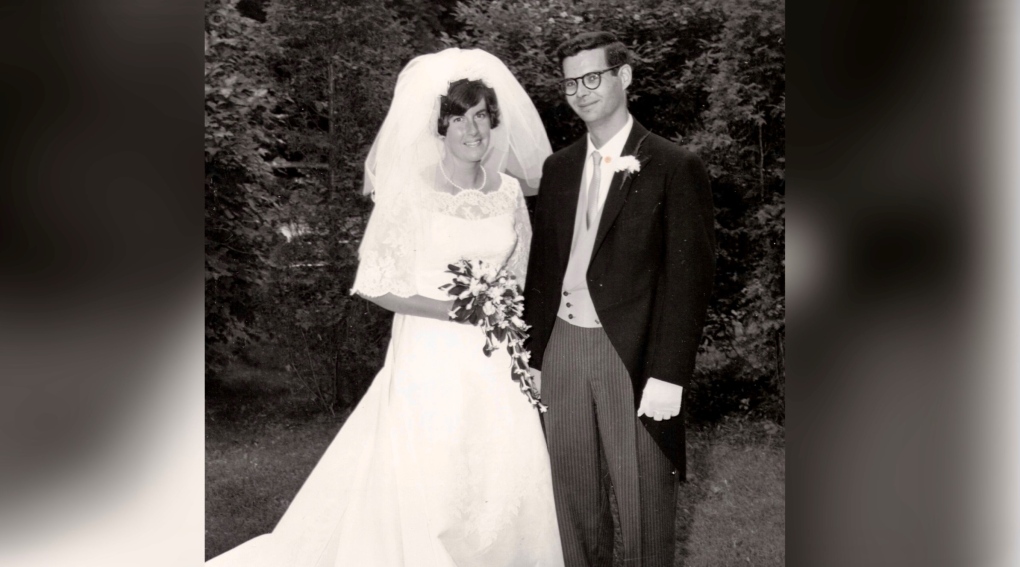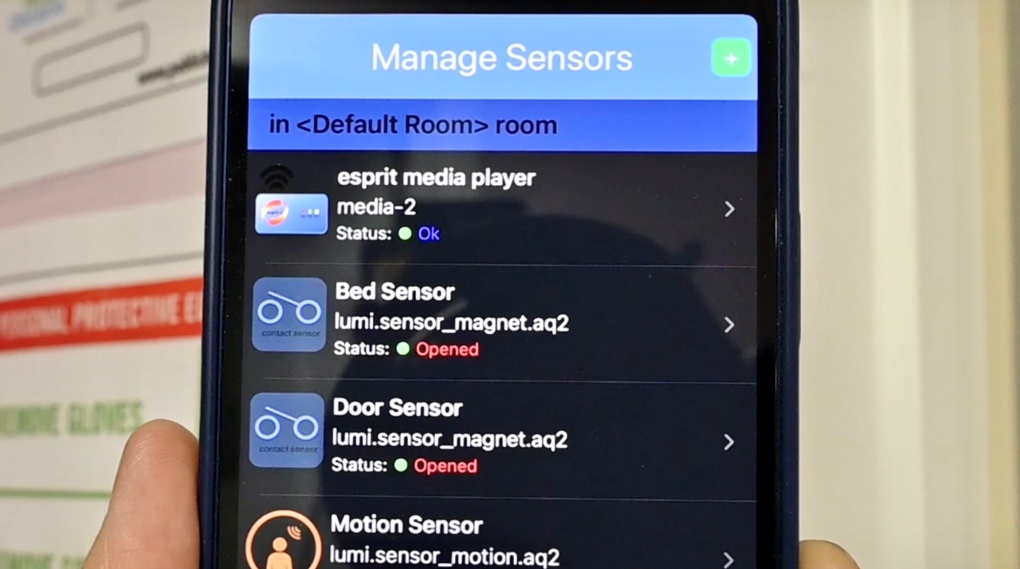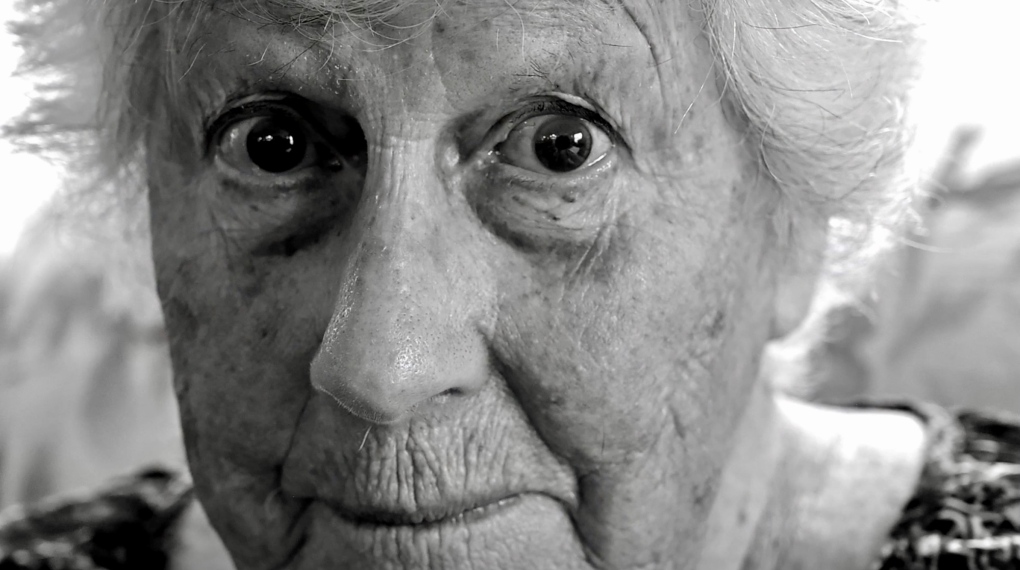When you care about care: Homesmart Tech helps those living with dementia
Fifty-four years ago, Anthony Le Moine wed the love of his life.
"We had six dates before we got engaged," an emotional Le Moine reminisces.
"I had been a bachelor for 10 years and it was time I settled down and this was the right gal."
That gal is Pam. Together, Anthony and Pam created a large, loving family and life.
"We have three boys, and they all had children. So, we have six grandchildren."
Eleven years ago, life changed for this connected couple.
Pam didn’t seem herself. She started misplacing things, forgetting things. It was not like her at all.
"Car keys, purses, things slowly got worse," says Le Moine, reflecting on the gradual deterioration of his darling’s memory.
Pam was diagnosed with Alzheimer’s.
 Pam and Anthony Le Moine wed 54 years ago. (Photo courtesy: Pam and Anthony Le Moine)
Pam and Anthony Le Moine wed 54 years ago. (Photo courtesy: Pam and Anthony Le Moine)
For years, around the clock, Anthony would care for Pam at home.
"It became a full-time occupation. I survived, but just," said a heartbroken Le Moine.
Exhausted, Anthony would move Pam to the Richmond Care Home for women living with dementia. It was a necessary but crushing decision.
"It’s hard after 54 years of marriage to go to bed and look over and she’s not there," he said, his voice breaking.
"But I know where she has to be and I’m ok with that, because I can’t look after her anymore.”
The caregivers who can look after Pam, and others in Richmond Care Home, will now have access to leading-edge technology that monitors residents’ movements inside the home.
The home-smart technology was developed in partnership with Bruyère Continuing Care and Carleton University. It’s designed to give support workers and families peace of mind, while keeping loved ones safe and secure.
 Sensors help caregivers monitor the movements of residents living with dementia (Joel Haslam/CTV News Ottawa)
Sensors help caregivers monitor the movements of residents living with dementia (Joel Haslam/CTV News Ottawa)
Dr. Frank Knoefel is a physician with Bruyère‘s Memory Program. He cares about care.
"I want to make a difference in older people’s lives," he said.
Knoefel is determined to develop and refine technologies to help caregivers.
"We had a spouse of a person living with dementia who told us she doesn’t sleep well at night because when he gets up in the middle of the night, she’s not sure if he’s coming back to bed, or if he’s going to walk out the front door, which could have tragic consequences in an Ottawa winter," said Knoefel.
"So, we developed a system, tested it and actually used in the community."
Now, sensors are being installed throughout the care home in Richmond.
The Research Coordinator at the Bruyere Institute, Laura Ault, shares Knoefel’s enthusiasm for helping others.
"I’ve always wanted to work in a space where the hours I put in during the day benefit someone else at the end of the day," she said.
Ault is seeing the Bruyère Institute’s work making a vital difference.
"I see the struggles, I see how people with dementia are affected," she said.
"So, if I can make it slightly easier for people coming into that demographic, that’s worth it to me," she said.
 Pam Le Moine in the Richmond Care Home for women living with dementia. (Joel Haslam/CTV News Ottawa)
Pam Le Moine in the Richmond Care Home for women living with dementia. (Joel Haslam/CTV News Ottawa)
The Homesmart sensors, installed by Bruyère researchers and the Ottawa company Esprit AI, are placed on beds, walls, and bedroom doors.
When a door opens, or a resident gets out of bed, staff are notified in real time on their mobile devices. They also receive SMS text alerts notifying them if someone tries to open the door and leave.
The sensors offer a safety net for residents living with dementia, whose risk of falling is dramatically increased because of their condition.
"When you see individuals with dementia who have falls, they can have a lot more challenges recovering from them and that can often lead to hospitalizations and potentially death," said Carole Green of Care for’s Richmond Care Home.
"So, this is something that will be great for the community,” she said.
The technology could reduce the need for medications sometimes used to prevent those living with Alzheimer’s from wandering.
"This is a game changer for me. I might be able to prescribe an electronic system rather than prescribing a pill," said Frank Knoefel.
"It’s going to be life-changing. We aren’t their main family but we are family to them," said personal support worker, Lee Doucett.
"This helps us as to be able to look after them properly," she said.
And for family members, like Anthony Le Moine, that’s everything.
"It’s a great relief."
CTVNews.ca Top Stories

Trudeau's 2024: Did the PM become less popular this year?
Justin Trudeau’s numbers have been relatively steady this calendar year, but they've also been at their worst, according to tracking data from CTV News pollster Nik Nanos.
Manhunt underway after woman, 23, allegedly kidnapped, found alive in river
A woman in her 20s who was possibly abducted by her ex is in hospital after the car she was in plunged into the Richelieu River.
Calling all bloodhounds: These P.E.I. blood donors have four legs and a tail
Dogs are donating blood and saving the lives of canines at the University of Prince Edward Island's Atlantic Veterinary College in Charlottetown.
Summer McIntosh makes guest appearance in 'The Nutcracker'
Summer McIntosh made a splash during her guest appearance in The National Ballet of Canada’s production of 'The Nutcracker.'
A 9-year-old is among 5 killed in the Christmas market attack in Germany
A nine-year-old was among five people killed when a Saudi doctor intentionally drove into a Christmas market teeming with holiday shoppers in the German city of Magdeburg, an official said Saturday.
Wild boar hybrid identified near Fort Macleod, Alta.
Acting on information, an investigation by the Municipal District of Willow Creek's Agricultural Services Board (ASB) found a small population of wild boar hybrids being farmed near Fort Macleod.
Toronto firefighters rescue man who fell into sinkhole in Yorkville
A man who fell into a sinkhole in Yorkville on a snowy Friday night in Toronto has been rescued after being stuck in the ground for roughly half an hour.
Winning $20-million Lotto Max ticket sold in Hamilton
Someone who purchased a Lotto Max ticket in Hamilton for Friday night’s draw is now $20-million richer.
Overheated immigration system needed 'discipline' infusion: minister
An 'overheated' immigration system that admitted record numbers of newcomers to the country has harmed Canada's decades-old consensus on the benefits of immigration, Immigration Minister Marc Miller said, as he reflected on the changes in his department in a year-end interview.
































